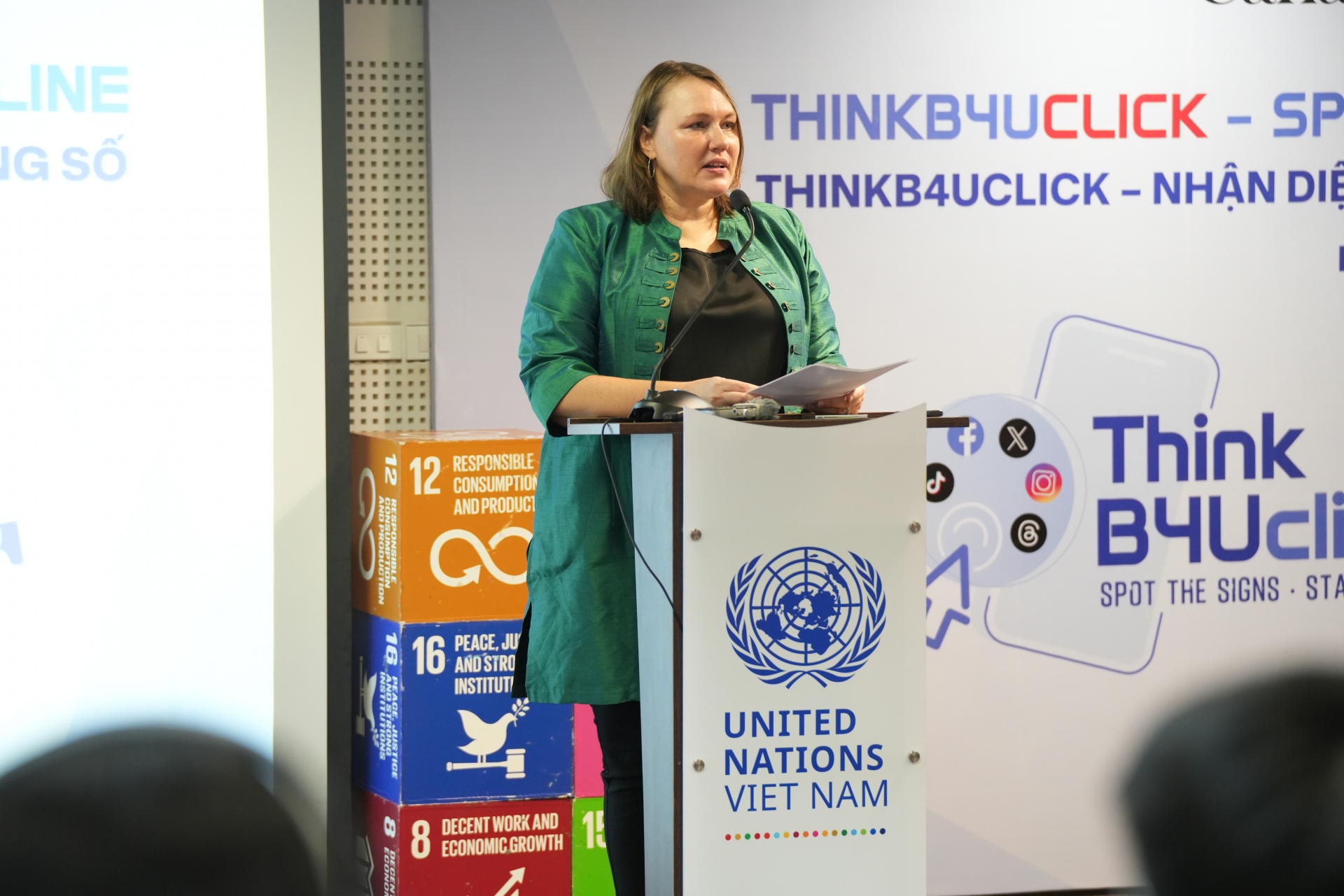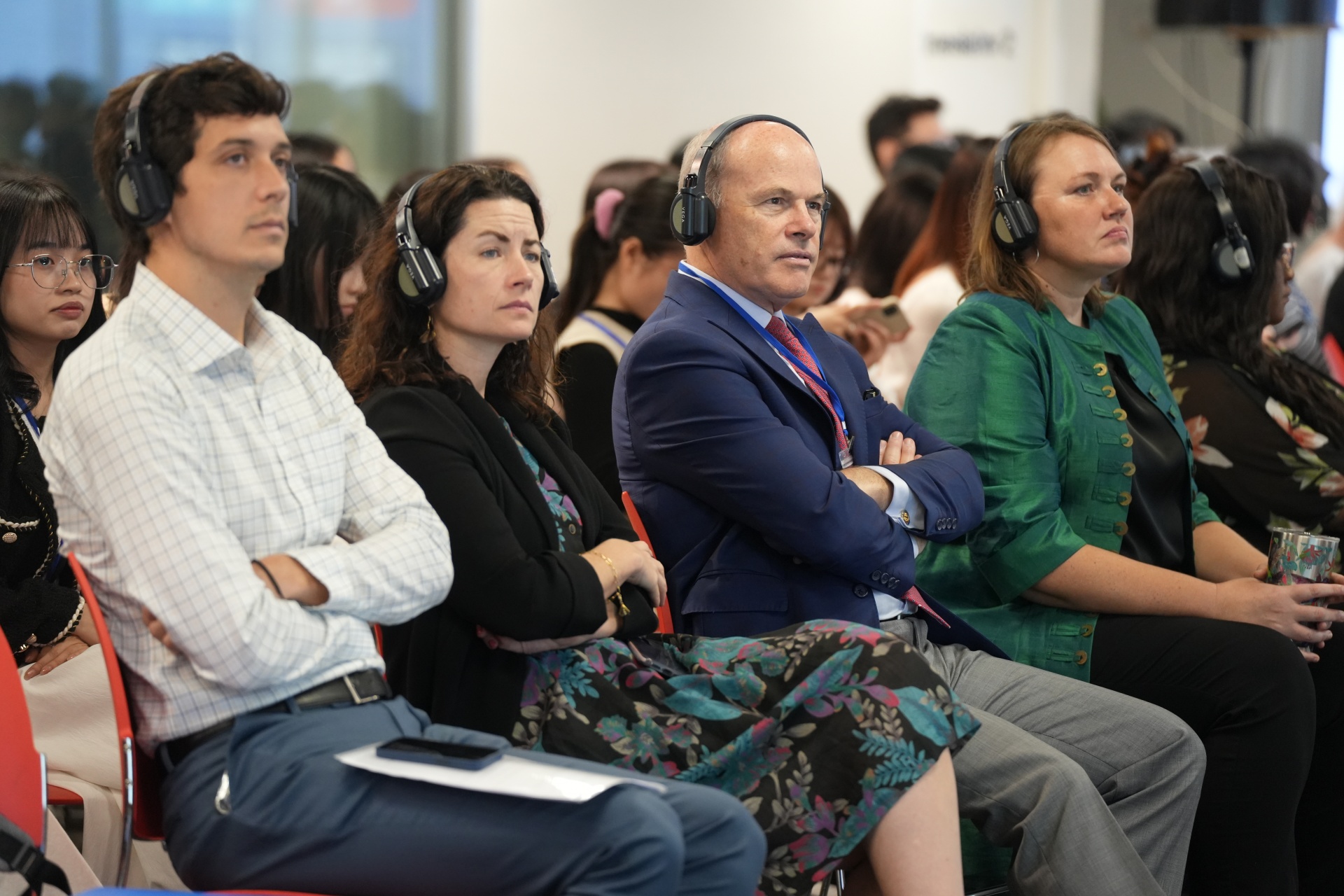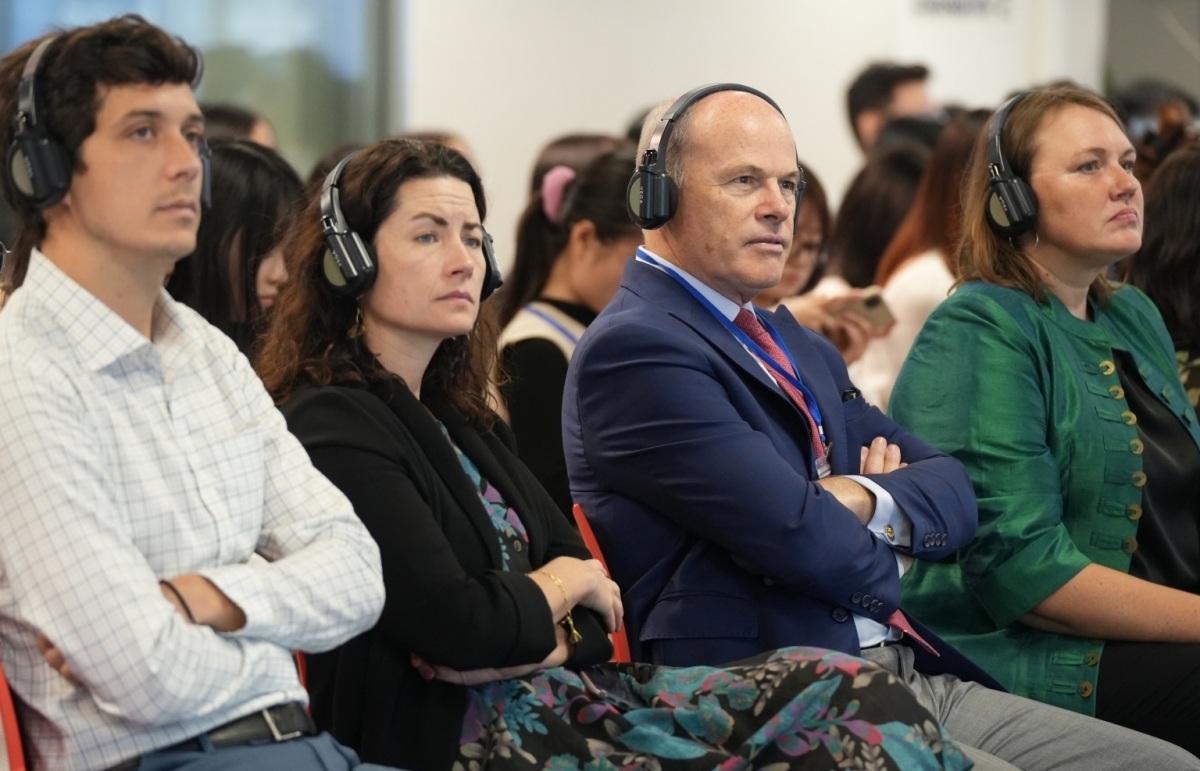The International Organisation for Migration and the Embassy of Canada have launched a new initiative to equip Vietnamese youth with digital skills and awareness to prevent online trafficking.
On October 28, the International Organisation for Migration (IOM), in partnership with the Embassy of Canada in Vietnam, introduced the ‘ThinkB4UClick’ initiative to promote safe migration and digital resilience among young people. Nearly 300 participants – including university students, digital practitioners, and members of the IOM Youth Network – joined the hybrid event to explore how critical thinking and online safety can help counter cyber-enabled crimes and trafficking risks.
 Kendra Rinas, Chief of Mission of IOM in Vietnam
Kendra Rinas, Chief of Mission of IOM in Vietnam
The training featured data-driven insights, scenario-based exercises, and social media campaign planning, all designed to cultivate a new generation of digital guardians.
The event served as a platform to spotlight emerging trafficking trends and foster international cooperation. It encouragd the strategic use of social media and technology to raise awareness about tactics employed by trafficking networks, while reaffirming the importance of victim-centred approaches.
Participants underscored the vital role of youth as agents of change in the fight against human trafficking.
According to an IOM report on trafficking and online scamming centres, the number of victims forced into criminal activities that have been supported by IOM in Southeast Asia has more than tripled, from 296 in 2022 to 1,093 so far in 2025.
Research by IOM also reveals that half of these victims are high school graduates and the other half are university graduates. They were lured through fake job offers, with many being young, educated individuals deceived into conducting cyber scams for criminal networks.
“Trafficking in persons doesn’t just happen through physical contact, it is increasingly online and complex,” said Kendra Rinas, Chief of Mission at IOM Vietnam.
“With Vietnam’s 22 million young people increasingly connected online, empowering them to think critically, stay safe, and speak out against exploitation is one of the most effective ways to counter trafficking in persons,” she added.

Vietnam has seen a surge in digital kidnapping scams in recent years, where perpetrators use AI-generated voice deepfakes, impersonate authorities, and isolate victims from their support networks.
These alarming trends highlight the urgent need for digital literacy, not just as a technical skill, but as a critical mindset to detect deception and make informed decisions.
“Digital literacy is no longer a luxury, it’s a shield,” said H.E. Jim Nickel, Ambassador of Canada to Vietnam. “With over 50 per cent of traffickers now recruiting online, teaching young people to think before they click can mean the difference between safety and exploitation. Canada’s support for the ThinkB4UClick initiative reflects our belief in youth-led prevention. When youth speak in their own voice, we build digital ecosystems that protect dignity, rights, and opportunity.”
Following the training, participants will launch a youth-led digital campaign to reach hundreds of peers nationwide. Using platforms such as Facebook, TikTok, Zalo, and Instagram, they will create accessible and relatable content to raise awareness about online risks, promote safe migration pathways, and foster digital responsibility.
